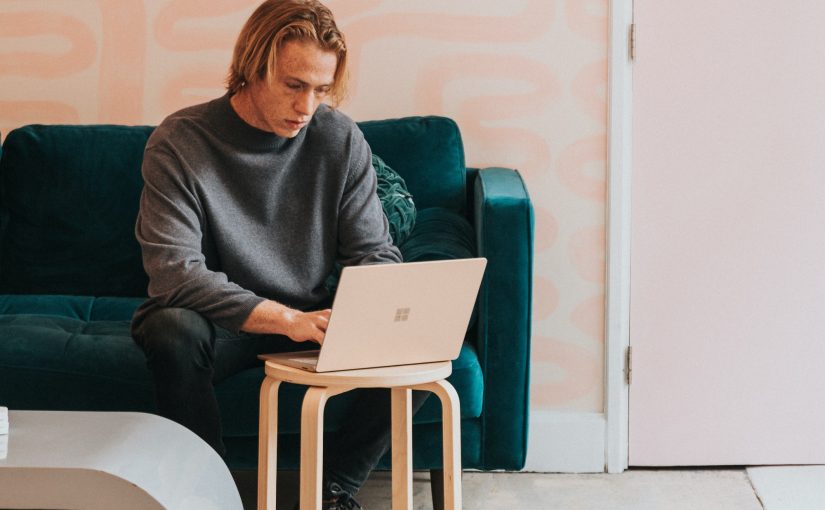Barclays boss, Jes Staley recently commented, that in his opinion, having thousands of bank workers in big expensive city offices ‘may be a thing of the past’
There is no doubt that the current situation has caused many people on both sides of the employer/ staff divide to question what was, before Coronavirus was a reality, and how they will choose to carry out their work in the future.
Not least in this reckoning, is WHERE people choose to work. Jes Staley went on further, to declare that Barclays were having to rethink the bank’s long-term ‘location strategy’ – how they would accommodate different working patterns and remote work locations in the future (Barclays currently have 70,000 of their global workforce working from home, due to the Coronavirus measures).
So what will the future look like for a modern workforce, post the Coronavirus pandemic?
To answer this question, it’s wise to consider the many opinions of normal people who have switched to working from home, from a larger central office.
One can pick up very quickly, that for many, lockdown has actually been a more positive working experience, as the pressure of a long daily commute, overcrowded buses and trains, traffic chaos on motorways, pollution, road-rage and public transport delays…(to name but a few), have become an ever more distant memory.
Do we want to go back to what was before? Although some are happy to go back to the status quo that was, others are far more reticent and have taken readily and enthusiastically to home working.
In a recent interview for BBC Scotland, career coach, Adrian Marsh stated that; “For the employee, the number one thing that people love is the flexible schedule, he said. You don’t have to be tied into the 9-5.
“Some people love the fact that you can work from anywhere, so maybe you take yourself off for a long weekend, but you do a bit of work on the Friday in that location. And some people find working from home is nicer than working in cramped office environments.”
Adrian went on to mention the benefits to employers from a reduction in office costs, as well as improved productivity rates from happier workers and longer retention of staff.
Flexible Shared Workspaces
For many freelancers and contractors, flexible remote working was the norm, long before Coronavirus, self-isolation and lockdown.
But even sole traders and the self-employed have had to make many adjustments to home working, with the closure of many of their regular haunts, in the form of cafés, coffee shops and shared workspaces.
So will the working from smaller, shared workspaces become the norm, post-lockdown for many more of the city and office based workers?
If anything has been proven during the lockdown, and much to the surprise of many employers, is the fact that on the whole it’s been successful and business continuity, even improvement in some cases, has been experienced.
A recent article in The Guardian, reported that; ‘As governments across the world have placed their citizens on lockdown, downloads of video conferencing apps have soared to record highs and the companies behind them have seen their share prices rise while the rest of the global stock market tanks.’
Ironically, given the current situation and the post-COVID-19 problems alluded to above, Zoom’s founder, Eric Yuan first came up with his idea for video-conferencing while at university in China in the 1990s, when he would travel by train for 10 hours to see his then-girlfriend, now his wife.
“I detested those rides,” “I used to imagine other ways I could visit my girlfriend without travelling — those daydreams eventually became the basis for Zoom.”
It’s likely that many employees, contractors and freelancers, as well as directors themselves will be looking towards other working solutions when Coronavirus is over, maybe a blended approach to working will be the solution, so a portion of work at home, some in the office, and some at the many shared office locations that are nearer to home?
Professional shared workspaces, nearer to a home location, may actually be the ideal solution for many in the future months, giving workers a place to work and have the essential social contact lockdown has robbed from so many, yet affording non-crowded, quiet and easy to use facilities often lacking in the home environment, and certainly lacking in crowded coffee shops and cafes with their accompanying less-than-reliable Wi-Fi signal.
Back to Barclays and boss, Jes Staley who commented, “There will be a long-term adjustment to our location strategy, the notion of putting 7,000 people in the building may be a thing of the past.”
So if other corporate entities take on the same stance as Barclays, we could see a very different business landscape in the future, as we see many more people choosing flexible work options, in or closer to home.
Whatever the outcome, it doesn’t look like it’s on the cards to return to what was the ‘norm’ only a few short weeks ago. We’ll wait and see with great interest how the situation unfolds over the coming months.
Bludesks.com is an online platform where users can search and find local workspaces for a few hours, to continuous monthly use. It is a pay-as-you-use service, offering commitment-free workspace hire in the UK and across many other countries.
LowCost Letterbox is Bludesk’s sister company providing Virtual Office packages that allow home workers to establish a prestigious London Virtual Office, where their mail can be scanned and letters forwarded, also with the facility to forward calls or provide call answering. There is a current promotion for the first 3 months at half price on Virtual Office packages.
